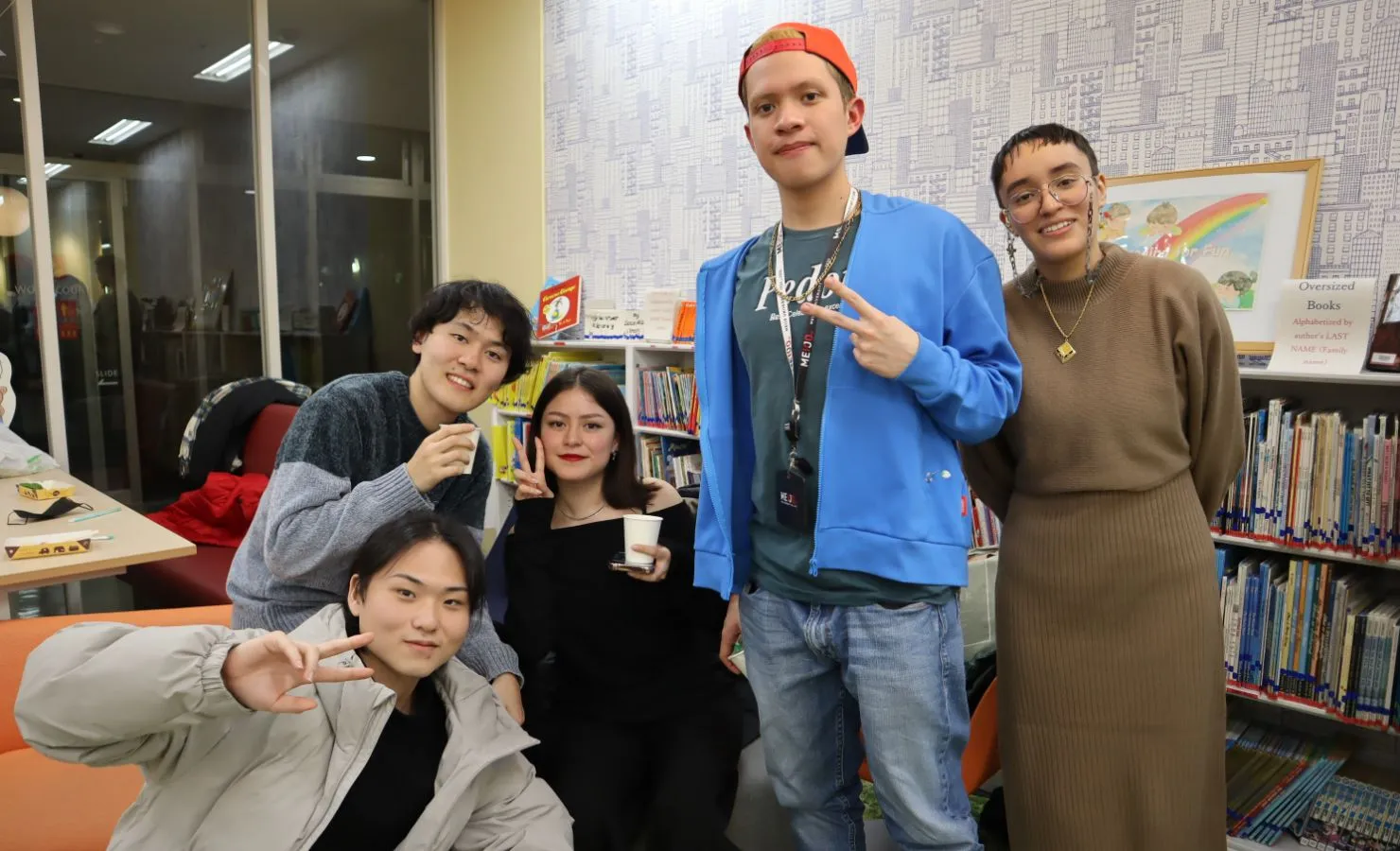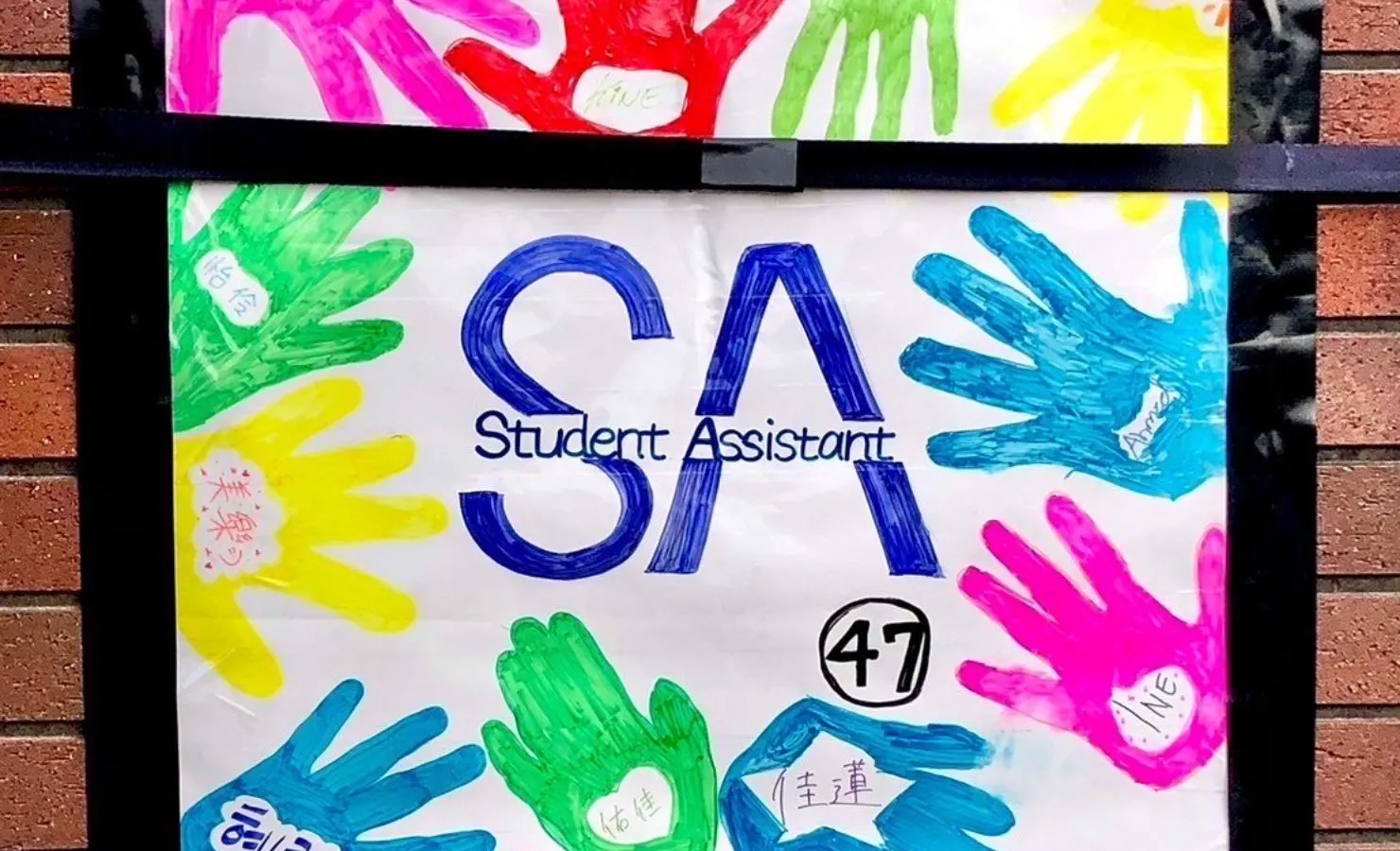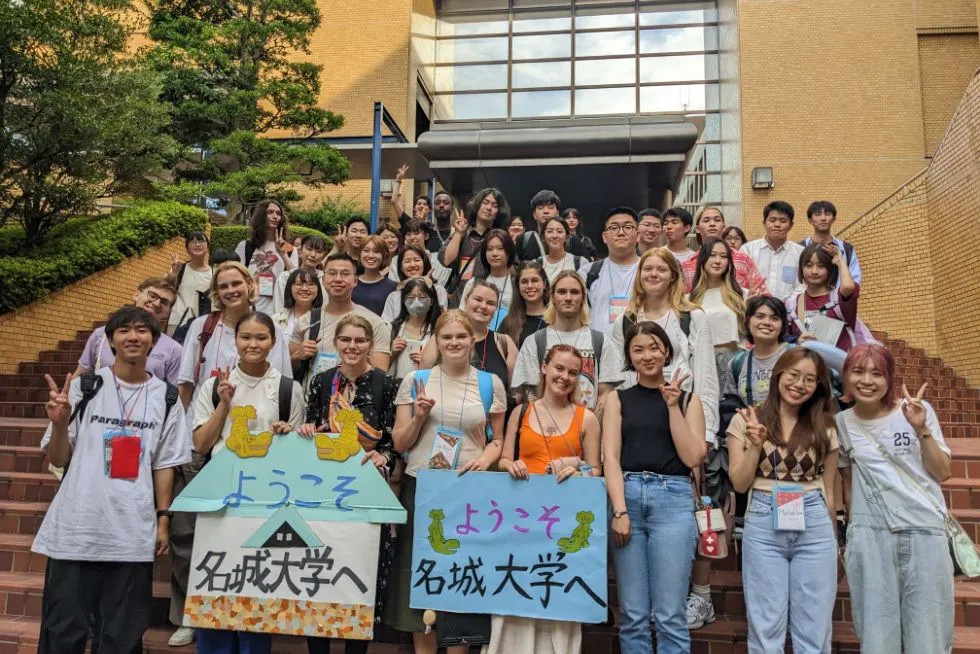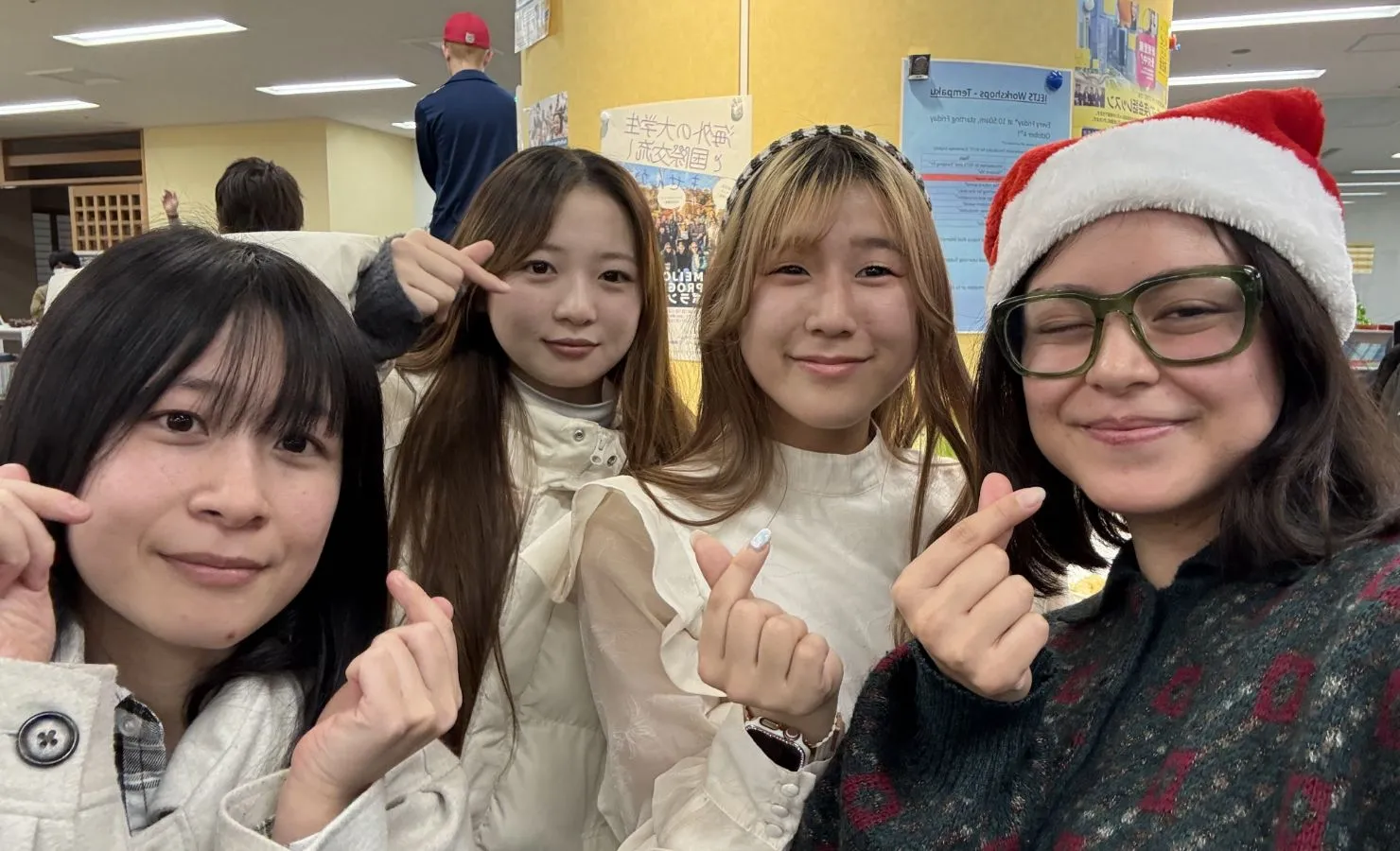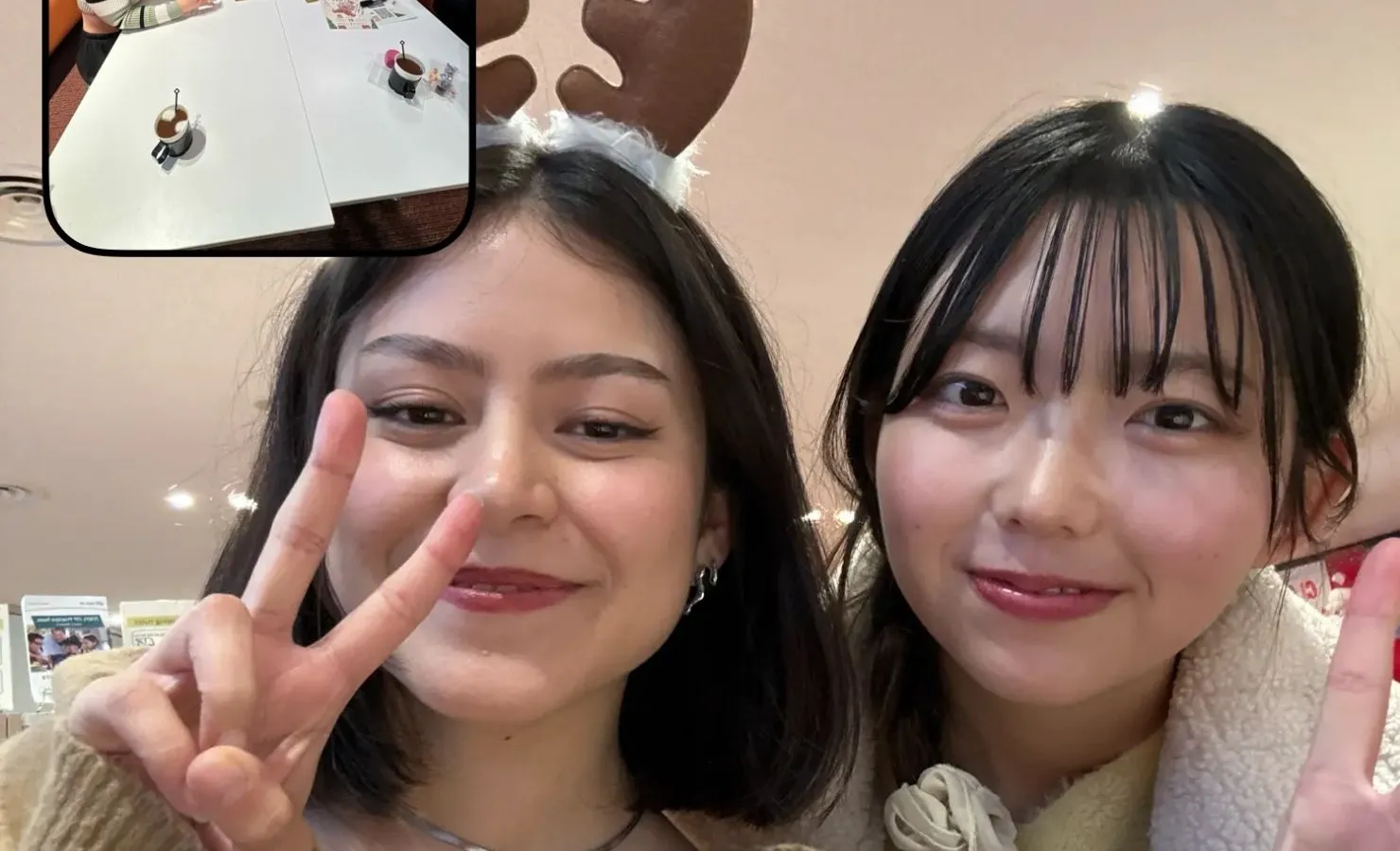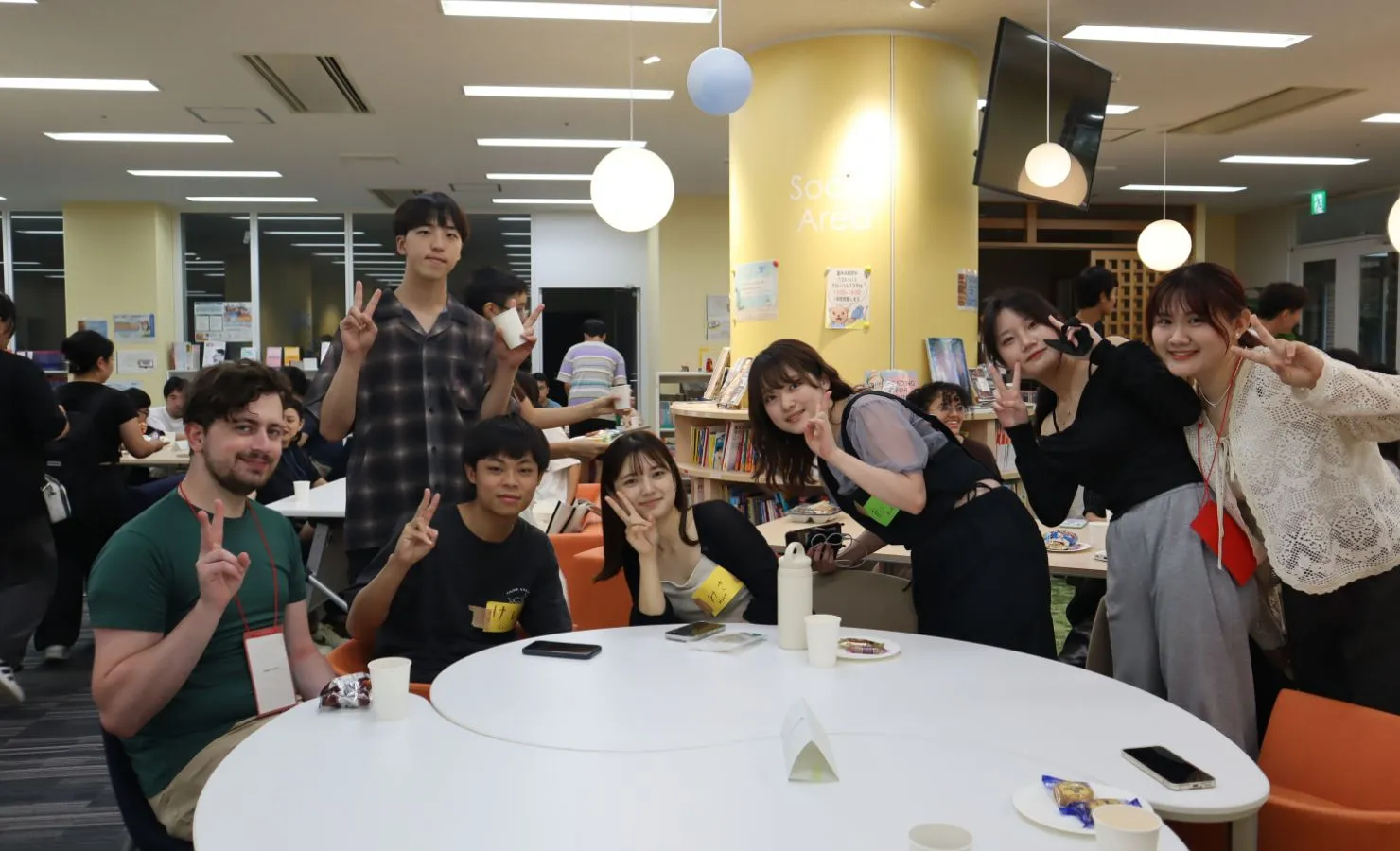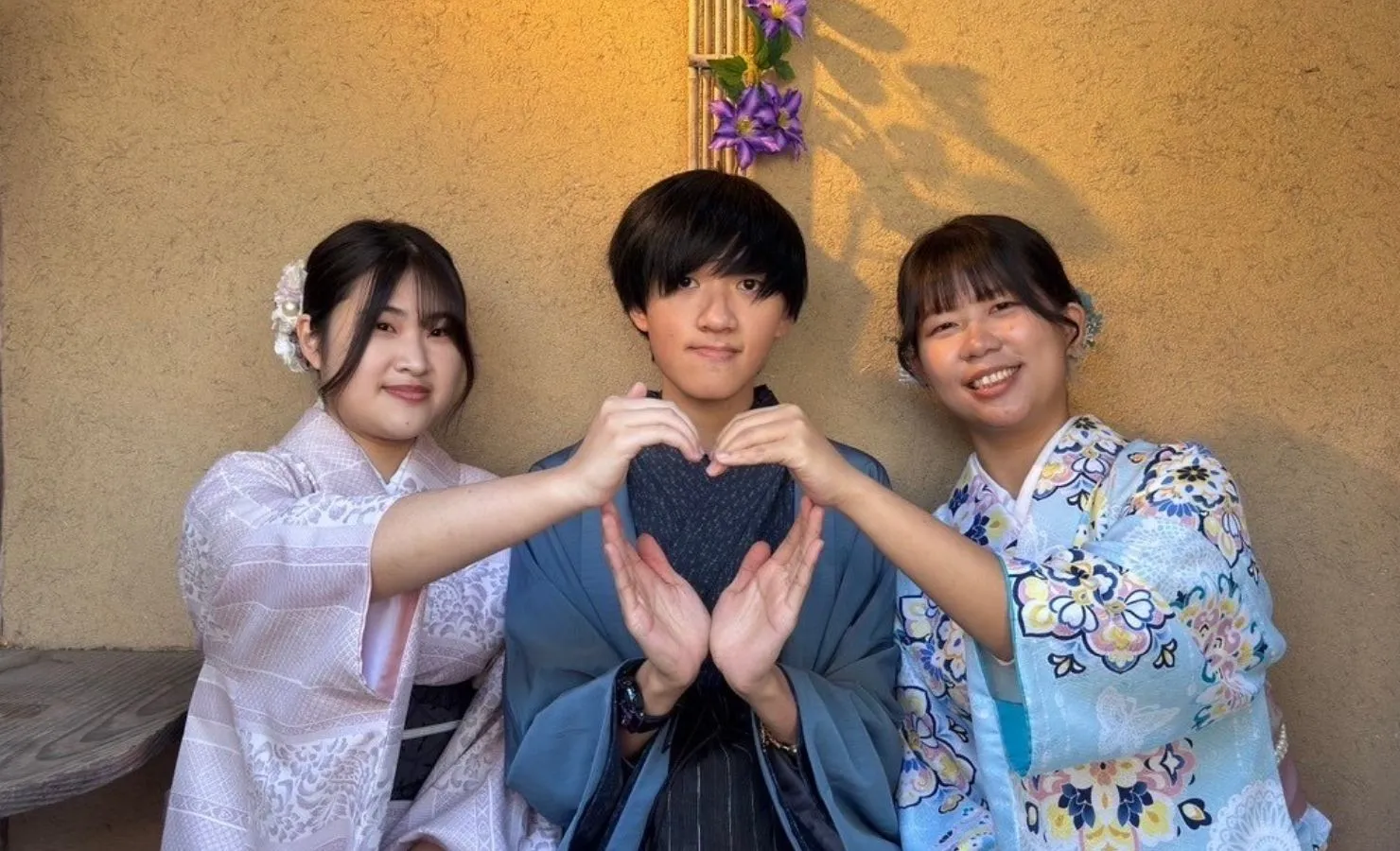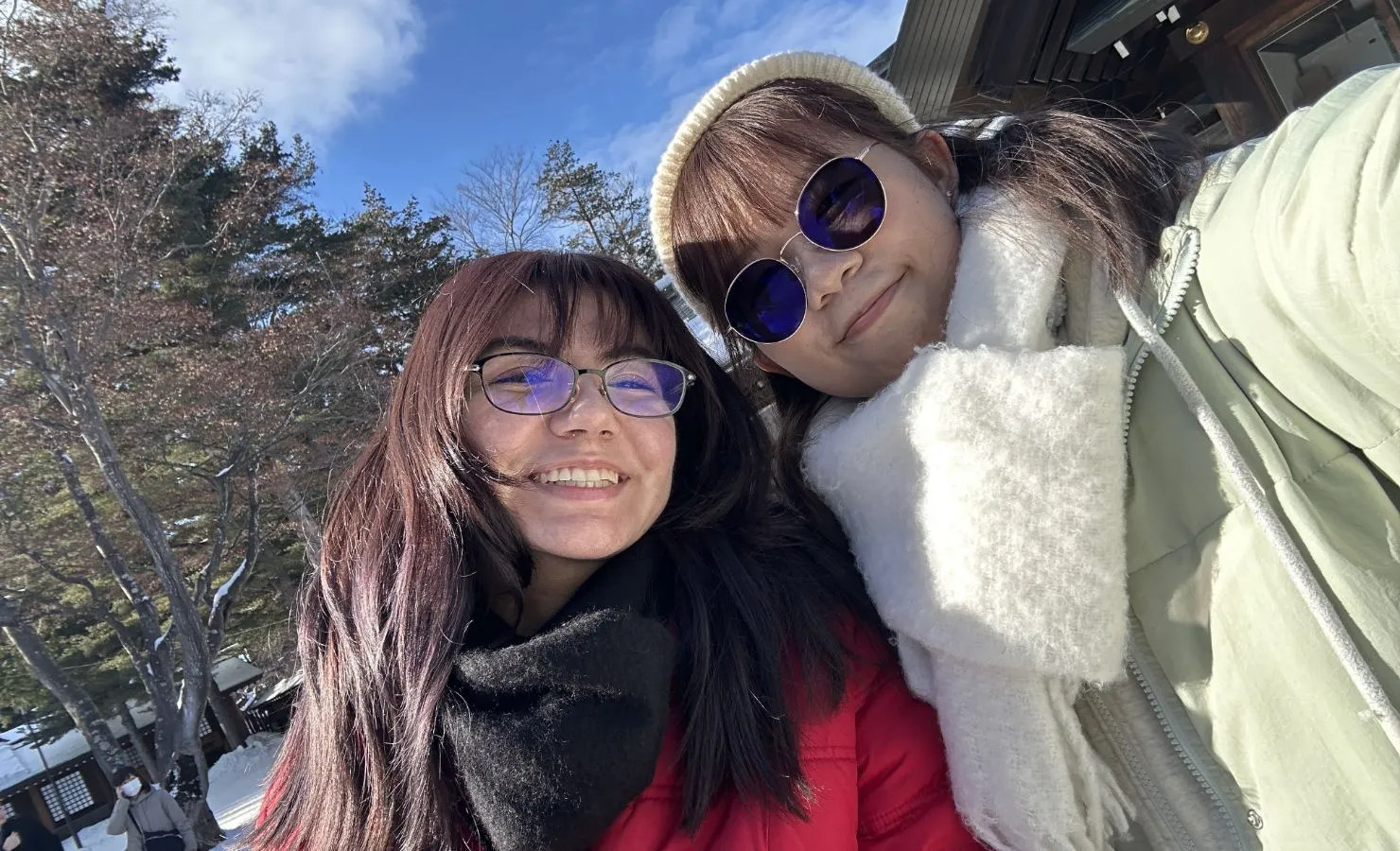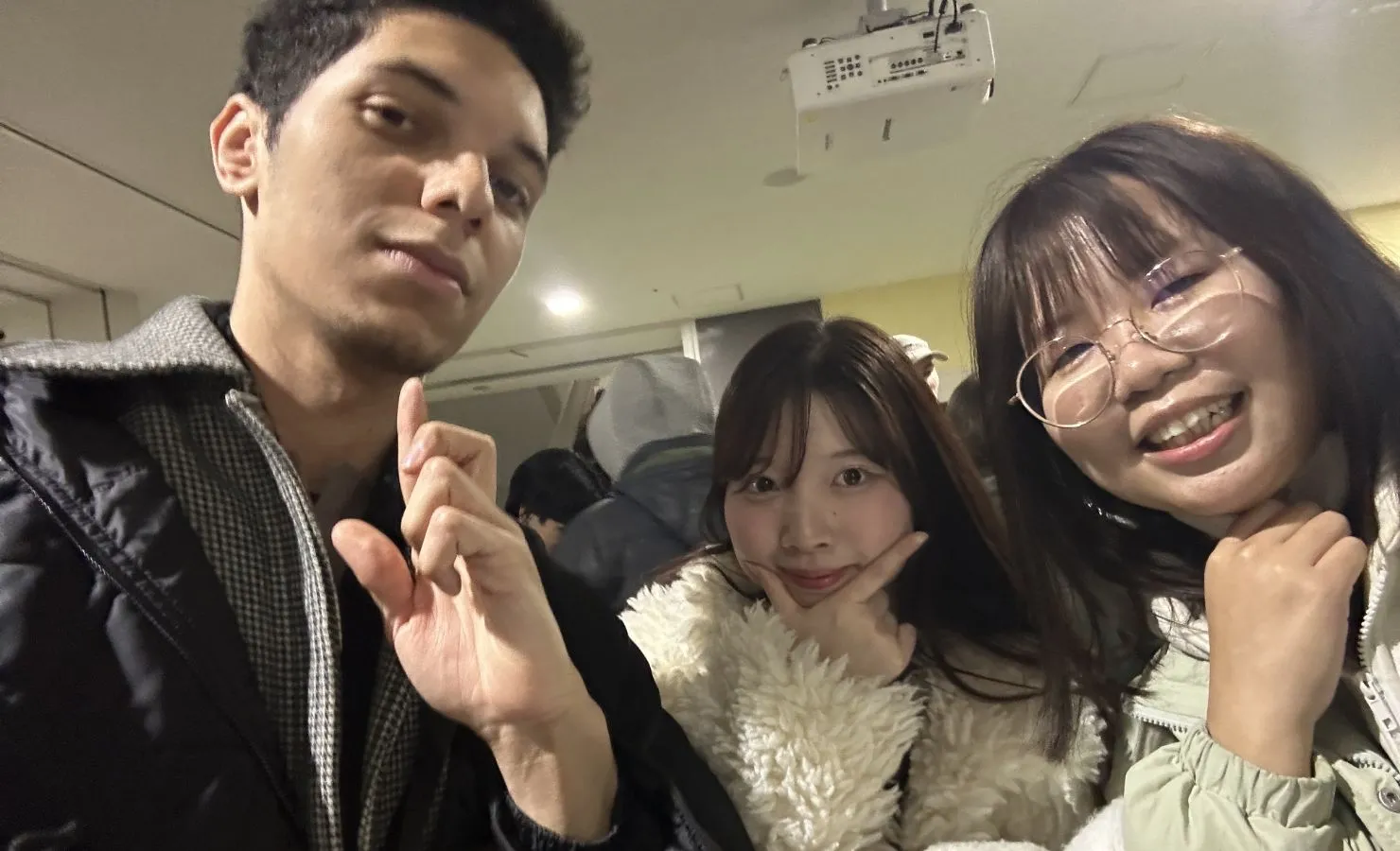STUDENT LIFE

STUDENT ASSISTANTS(SA)
Student Assistants (SA) are volunteer students who offer support to international students in various aspects, from daily life to academic assistance. Around 300 Meijo University students from different faculties are registered as Student Assistants, providing numerous opportunities to make Japanese friends.
-
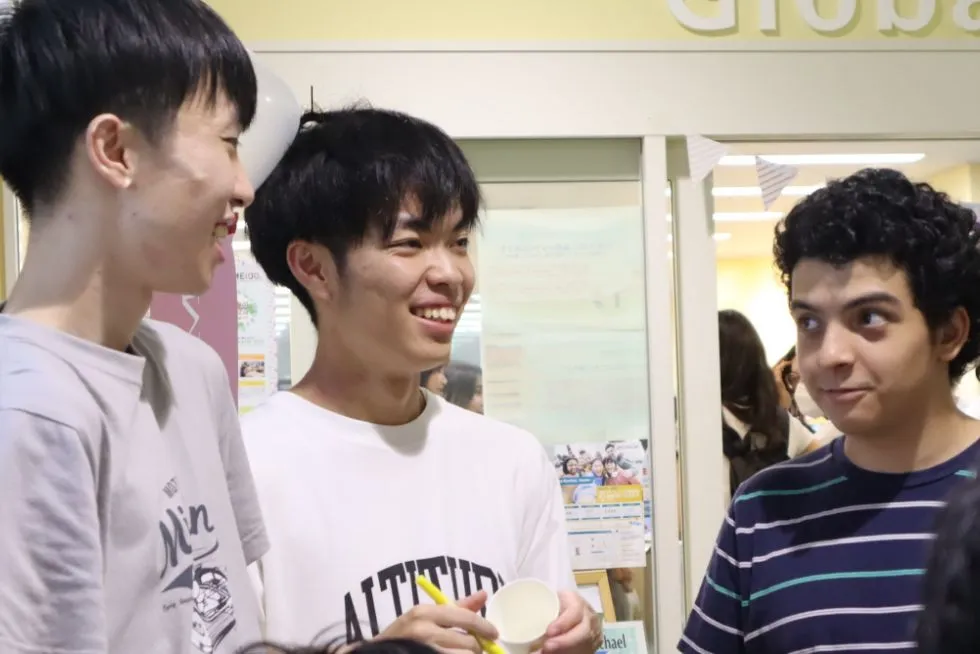
Speaking Partners
A regular weekly session is held where international students pair up with student assistants as speaking partners. In these sessions, international students receive Japanese language support based on their needs; they can have their Japanese essays corrected or receive assistance in preparing for their classes.
-
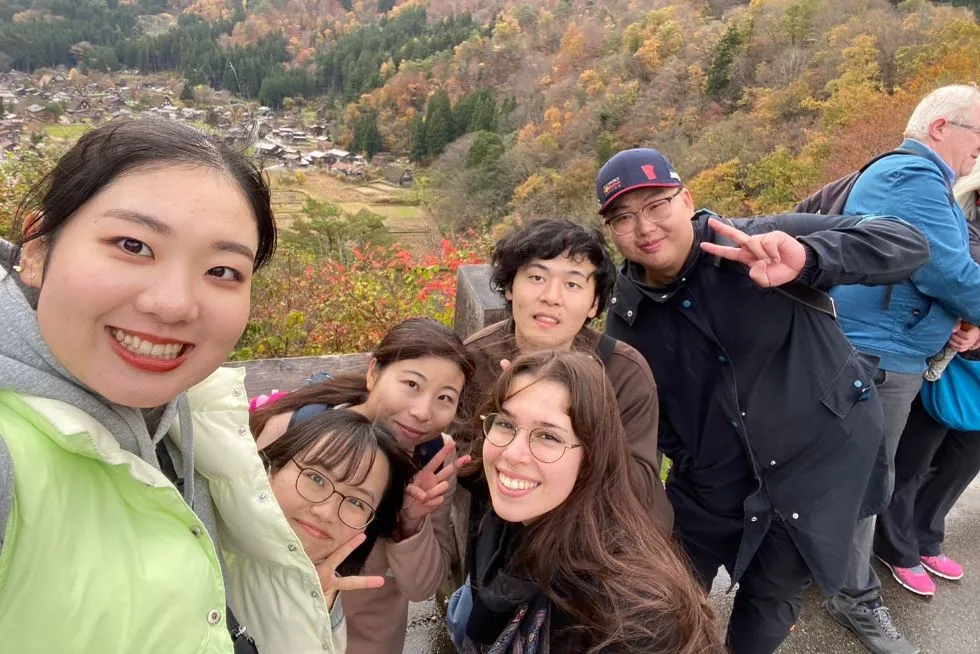
Student(SA)-led Field trips
SA Students organize field trips several times each year for international students to visit locations that provide a deeper understanding of Japan and its culture. These trips also offer a great opportunity to meet new friends.
-
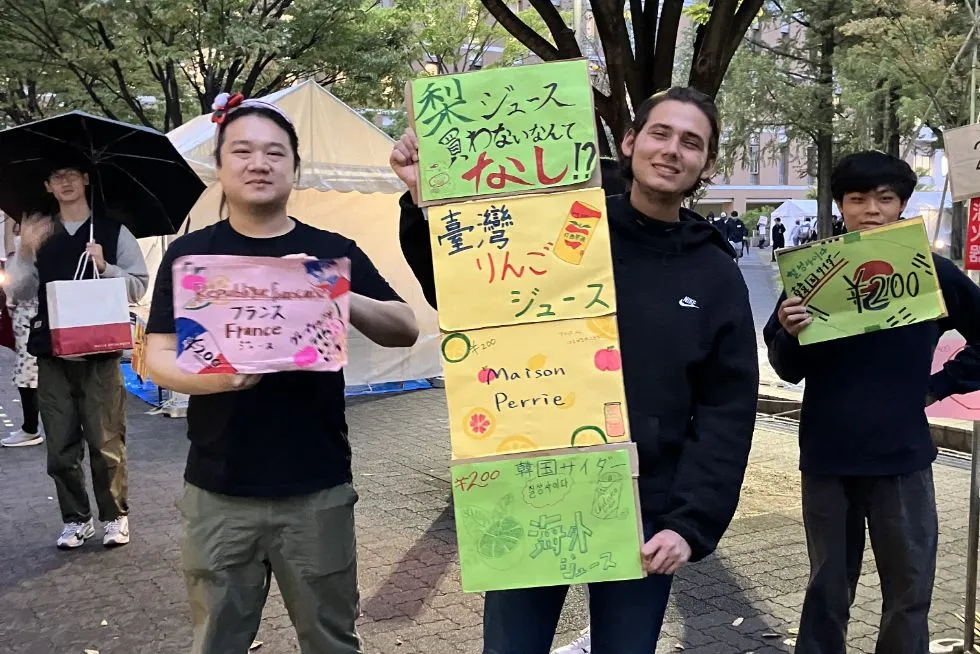
University Festival
The University Festival is independently organized by students to reflect what is important to them. Working together with one another to run the festival stalls can deepen the cross-border bonds with your friends. Part of the festival is shows performed by clubs and special events to which idols or celebrities are invited, providing you and your friends with party opportunities!
-
Airport Pickup Service for
Exchange StudentsSA students pick up exchange students at the airport arrival lobby and take them to the dormitory near the campus.
Voices from
international students
Voices from
student assistants
CLUB ACTIVITIES

More than 15,000 students across the three campuses of Meijo University engage in
active campus life and participate in a variety of club activities. International students can
join
based on availability*.
Some of our former international students joined several clubs,
such
as the Japanese Tea Ceremony Club, the Dance Club, and the Karate Club.
*Availability varies depending on the season and year.
DAILY SCHEDULE
Student A

8:00
Breakfast
I have toast and coffee for breakfast every morning. Eating a proper breakfast helps me stay energized throughout the day.
9:10
The Japanese Language course
The first class begins at 9:10, and each class lasts 90 minutes. Through the Japanese language course, I hope to improve my academic writing skills, which will help me express my ideas more clearly and effectively in both academic and professional settings.
12:20
Lunch at the cafeteria
Having lunch with friends at the campus cafeteria. There’s a variety of menu options, and I never get tired of eating there every day.
13:10
The courses conducted in Japanese
I take several courses conducted in Japanese alongside Japanese students. The courses are taught by professors who specialize in their fields, and they are both interesting and insightful.
15:30
Hanging out with friends at the Global Plaza
Having a chat with some Japanese friends at the Global Plaza. The Global Plaza is not only an English learning facility but also a great place to meet new people and hang out. Japanese Mangas and DVDs are available.
17:00
Part time Job at a hotel
I luckily got a part-time job in a hotel in the city center. Through the job, I have been able to improve my communication skills with the guests.
22:00
Study Business Japanese
To improve my Japanese proficiency as much as possible while studying at Meijo and for my future career, I make an effort to study Business Japanese at home.
Student B

8:30
Breakfast and Exercise at the Gym
After having breakfast, I kick off the day with some exercises at the campus gym. The gym is equipped with high-quality fitness facilities.
10:30
Self-study at the Library
The library at Tempaku campus holds over one million books across a wide range of genres. I read books in my field of interest and work on assignments in the quiet environment.
12:00
Lunch Time
Having lunch at the Global Plaza. I usually cook lunch myself, but sometimes I buy it at the convenience stores on campus. In addition to food and drinks, they sell stationery and daily necessities, so daily shopping is not a problem.
13:10
The Japanese Language Course
The first afternoon class (3rd period) starts at 13:10. Studying the Japanese language with students from different countries helps me understand not only Japanese culture but also other cultures, making learning much more enjoyable.
14:50
The International Japanese Studies
By taking International Japanese Studies, I can deepen my understanding and knowledge of Japan, including its culture, history, and society, which will help me gain a broader perspective on the country.
16:30
Learning Japanese Language with Speaking partner
I learn Japanese Language with my speaking partners. They assist international students in learning the Japanese language based on our needs.
19:30
Dinner
I usually cook dinner at home and buy ingredients from the supermarkets near the dormitory. Sometimes, I invite other international students and Japanese students to join me for dinner.
STUDENT VOICE
Sandra Guerrero (Mexico)
What were you looking forward to about university life before your arrival (to Nagoya)?
I was excited about the opportunity to meet new people from diverse backgrounds and learn about their cultures and perspectives.
What gave you a sense of reassurance after starting this exchange program?
The teachers and staff’s understanding and willingness to help gave me a great sense of reassurance. Their efforts to make us feel part of the class and create a more engaging and enjoyable atmosphere really made the learning experience easier to digest.
What have you learned from Japanese culture?
From Japanese culture, I’ve learned the importance of respect, not only towards people but also in everyday actions, both spoken and unspoken. like respecting signs and instructions in both spoken and unspoken ways —such as standing on the left side of the escalator to allow people in a hurry to pass or waiting for the green light to cross the street.
What made you feel glad about coming to Japan?
What made me glad about coming to Japan was the opportunity to learn a new language and step out of my comfort zone by living in a completely different country. I was also excited about the valuable experiences I could bring back to my home country and how they would shape my academic and professional future.
Dyson Sanders (America)
What were you looking forward to about university life before your arrival (to Nagoya)?
Before arriving in Nagoya, I was most excited about the chance to step outside my bubble and experience life in a completely new environment. I couldn’t wait to meet people from all over the world, make new friends, and get to know different cultures.
What were your concerns about university life before your arrival (to Nagoya)?
One of my main concerns was affordability. I was unsure about how expensive living in Japan would be, especially when it came to things like accommodation, food, and daily expenses. I worried about balancing my budget while still being able to enjoy my time here and participate in university life. However, after starting the exchange program, I was pleasantly surprised to find that there were a lot of budget-friendly options from inexpensive local eateries to affordable grocery stores. Life in Nagoya turned out to be slightly more affordable than I had originally expected.
What have you learned from Japanese culture?
Some of the stereotypes that are portrayed online are rare or non-existent.
What meal surprised you in Nagoya, and why?
Miso-katsu (deep-fried pork cutlet with miso sauce) was as good as I imagined it.
What makes you feel glad about coming to Japan?
Through this exchange program, I was able to make some friends both with the exchange students and the Japanese students. It’s been incredibly rewarding to share cultural experiences, explore new places, and learn from each other.
Kao Tzu Ching (Taiwan)
What were you looking forward to about university life before your arrival (in Nagoya)?
Although there were many things I was excited about before coming to Meijo, I was especially looking forward to interacting with SA students and sharing our cultures. They are incredibly welcoming and eager to engage with international students, and I learned a great deal from my interactions with them.
What were your concerns about university life before your arrival (to Nagoya)?
I was initially worried about whether I would be able to make friends while studying abroad. However, shortly after arriving at Meijo, I realized that my concerns were unnecessary. There were plenty of opportunities to meet new people, and I was able to make friends right away.
What have you learned from Japanese culture?
In Japan, people show respect not only to others but also to nature, often expressing their gratitude with phrases like ‘Arigato’ and ‘Itadakimasu.
What makes you feel glad about coming to Japan?
While it’s great to have more opportunities to experience the lives of Japanese idols, the most important thing is that I discovered my passion for a future career in interpretation. I feel truly fulfilled when I’m able to interpret for my friends in Japanese, Chinese, and English.

